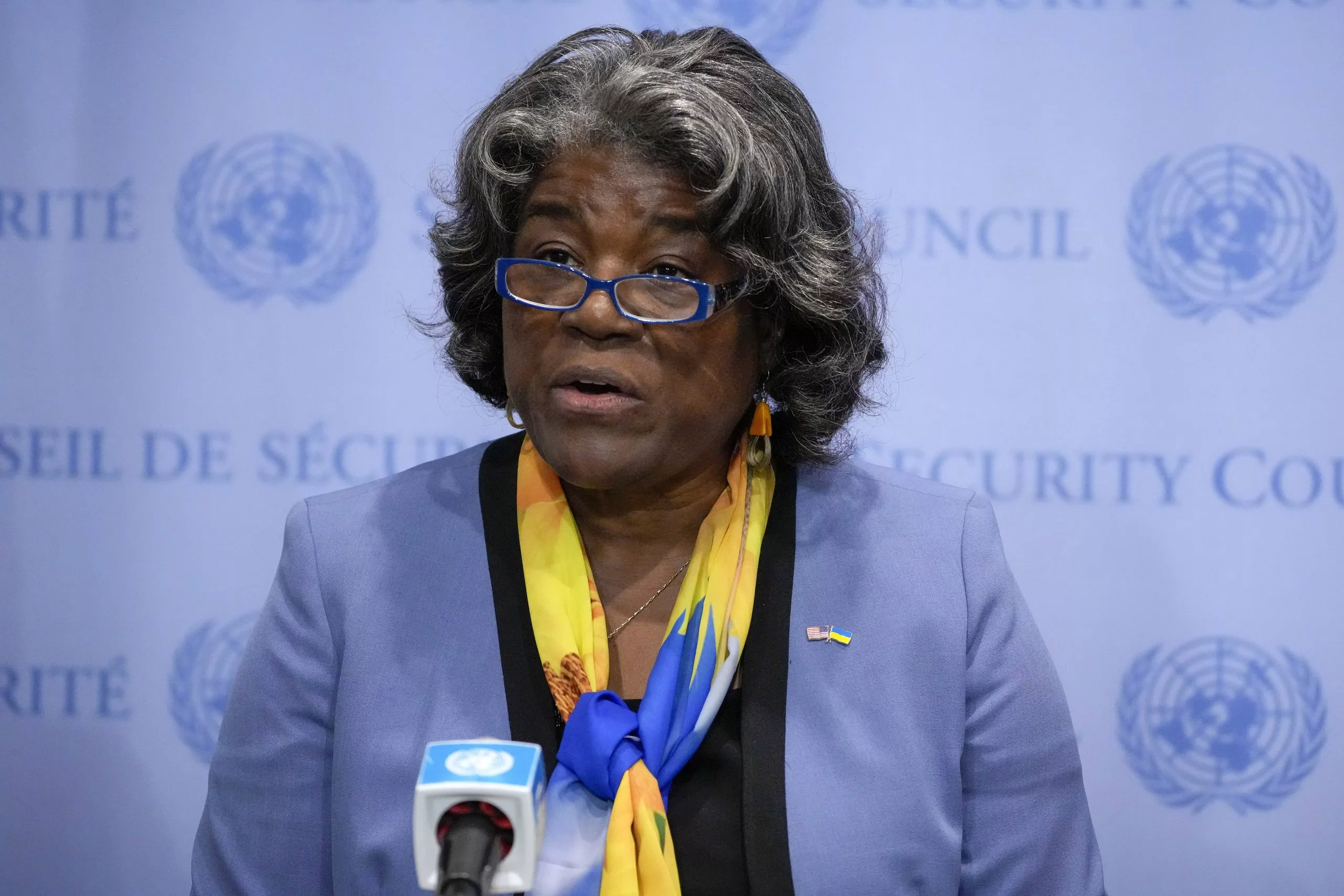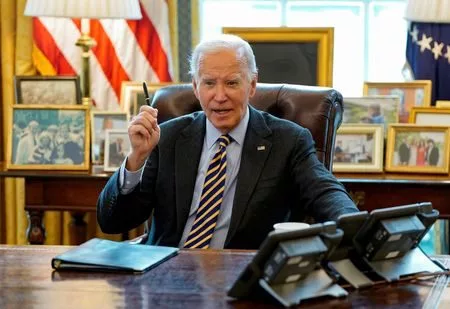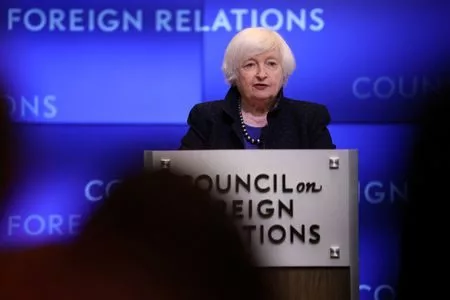UNITED NATIONS (AP) — The United States announced Thursday that it will support the addition of two new permanent seats for African countries on the powerful U.N. Security Council — and a first-ever non-permanent seat for a small island developing nation.
U.S. Ambassador to the U.N. Linda Thomas-Greenfield made the announcement in a speech to the Council on Foreign Relations, calling it a follow-up to U.S. President Joe Biden’s announcement two years ago that the U.S. supports expanding the 15-member body.
While Africa has three non-permanent seats on the Security Council, that doesn’t allow African countries “to deliver the full benefit of their knowledge and voices,” she said.
“That is why, in addition to non-permanent membership for African countries, the United States supports creating two permanent seats for Africa on the council,” Thomas-Greenfield said. “It’s what our African partners seek, and it’s what we believe is just.”
However, Thomas-Greenfield later said Washington opposes giving veto power to the African countries that would hold the two permanent seats because the veto makes the Security Council’s work “dysfunctional.”
That view shows the limits in the amount of power that Washington wants to give to any other country. While Security Council resolutions are legally binding, they are often ignored by targeted countries.
Virtually all countries agree that nearly eight decades after the United Nations was established in the wake of World War II, the Security Council should be expanded to reflect the world in the 21st century and include more voices. But the central question — and the biggest disagreement — remains how to do it.
The Security Council, which is charged with maintaining international peace and security, has not changed from its 1945 configuration: 10 non-permanent members from all regions of the world elected for two-year terms without veto power and five countries that were dominant powers at the end of World War II are permanent members with veto power: the United States, Russia, China, Britain and France.
Russia’s veto power, for instance, has stymied any council action on the war in Ukraine and U.S. support for its ally Israel has limited the council’s response to the war in Gaza.
Attempts to reform the council to reflect the changing world began in 1979.
In 2005, world leaders called for the council to be “more broadly representative, efficient and transparent.” That year, the General Assembly, which must approve any council reforms, shelved three rival resolutions to expand its membership, a reflection of deep divisions that have continued until today.
In September 2022, Biden called for increasing the number of both permanent and non-permanent members, including “permanent seats for those nations we’ve long supported, and permanent seats for countries in Africa, Latin America and the Caribbean.” The United States has long supported permanent seats for Germany, Japan and India.
Thomas-Greenfield made no mention of Biden’s other pledge about permanent seats for countries in Latin America and the Caribbean. But a senior U.S. administration official, who spoke on condition of anonymity to brief reporters ahead of the announcement, said the U.S. still supports permanent seats for Latin America and the Caribbean, plus Africa.
Responding to countries arguing that it’s time for the U.N. to look beyond just regional representation, the U.S. ambassador also announced that the United States is supporting the creation of an additional rotating seat for small island developing countries.
“These 39 states are not a monolith. They are home to 65 million people, across over 1,000 islands,” she said. “But each has critical insights on a range of international peace and security issues including, notably, the impact of climate change.”
Thomas-Greenfield said the United States plans “to actually put our principles on paper” and draft a resolution to reform the council.
Some countries argue that before negotiating a resolution, “all 193 member states need to be in agreement about what a reformed council should look like,” she said.
“I’m an optimist. But I’m also a realist. And the reality is this: no amount of conversation will ever get us to a place of total consensus on this issue,” Thomas-Greenfield said.
___
AP reporter Jennifer Peltz contributed from New York.
Brought to you by www.srnnews.com








